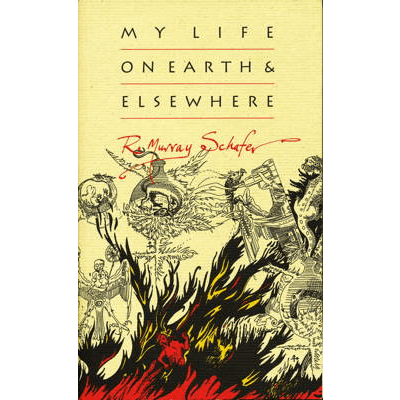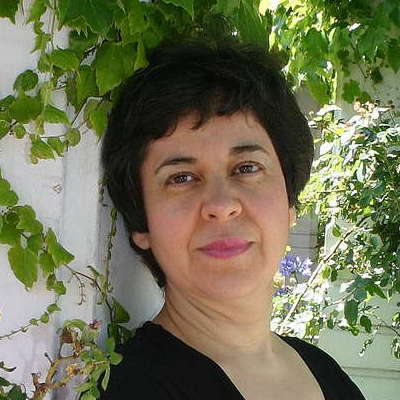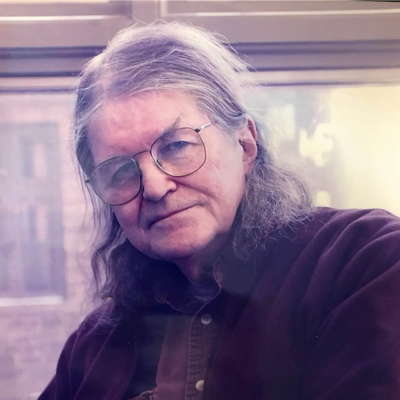 SPONSORED: So Much, for So Many. R Murray Schafer's 'My Life on Earth and Elsewhere', read by A P Virag.
SPONSORED: So Much, for So Many. R Murray Schafer's 'My Life on Earth and Elsewhere', read by A P Virag.
All sponsored features >>
 SPONSORED: A Seasoned Champion of New Music. Argentinian-American pianist Mirian Conti in conversation with Andrew Schartmann.
SPONSORED: A Seasoned Champion of New Music. Argentinian-American pianist Mirian Conti in conversation with Andrew Schartmann.
All sponsored features >>
 DISCUSSION: What is a work? John Dante Prevedini leads a discussion about The performing artist as co-creator, including contributions from Halida Dinova, Yekaterina Lebedeva, Béla Hartmann, David Arditti and Stephen Francis Vasta.
DISCUSSION: What is a work? John Dante Prevedini leads a discussion about The performing artist as co-creator, including contributions from Halida Dinova, Yekaterina Lebedeva, Béla Hartmann, David Arditti and Stephen Francis Vasta.
Christopher T Montgomery
Born on 29 March 1931, American composer Chris (Kit) Montgomery was the son of Chandler H Montgomery - an architect, designer, and progressive art educator - and Elizabeth V T Montgomery - a social worker and writer. He was born in Buffalo NY but moved about in his early childhood as his parents founded a series of small alternative schools in New York state and Pennsylvania before settling in Chicago in the late 1930s. They lived in Winnetka while Chandler oversaw arts projects under the Works Progress Administration and Elizabeth worked for the City of Chicago Social Services. Chris and his older brother Steve attended the Skokie School (where their father taught art) and the Francis Parker School (where their father also taught), but their primary education seems to have come from the creative, social, and political circles of their parents.
A powerful musical influence swept onto Chris from the Chicago jazz clubs and the burgeoning folk music movement, with the latter inspiring Chris and Steve as teenagers to organize the Winnetka Folk Music Festival in 1947. It took place in a borrowed farm field, had posters designed by their father, and hosted artists from across the country, including the young Odetta, Big Bill Broonzy and Leadbelly (just released from prison).
Chris attended Elisabeth Irwin School in New York City for one year in 1948 after his family moved there for Chandler to take a position teaching art education at NYU. Chris's time in New York was transformative and the city became his identity even when he left to attend Swarthmore College in 1949. At Swarthmore, he studied psychology but music was always present, in his studies, singing folk songs, playing guitar and participating (ambivalently) in musical theater productions. By his senior year, he had discovered a passion for composing, so he followed his graduation with three years of independent study with composers Stefan Wolpe and Vivian Fine, as well as applying himself rabidly to learning about theory and counterpoint.
It was Ms Fine's recommendation that brought Chris to the attention of composer Roger Sessions at Princeton, leading to admission into Princeton's MFA program in composition in 1957. The time at Princeton was not easy, and Chris's studies with such doctrine-driven atonal composers as Sessions, Milton Babbitt and Earl Kim were often misaligned with this highly melodic and song-influenced musician.
Chris completed his MFA with mixed feelings about composing, but during his time at Princeton, he had become re-acquainted with a fellow Swarthmore alum, Ruth Shimony. They quickly recognized their importance to one another, moved to New York together, and were married by a reluctant rabbi in Queens in 1959. Chris had often worked as a librarian during his young adulthood and, faced with the certainty that he didn't wish to pursue an academic career in music, he went to library school at the Pratt Institute. He had already secured a position as librarian at Brooklyn College while completing his degree, and was well established in that job when their first child, Jennifer, was born in 1961. Ruth, who had been teaching college English since completing her masters in Comparative Literature at Harvard, stepped away from work to focus on motherhood. They moved to Park Slope in Brooklyn, and their second child, Vivian, was born in 1963. In 1964, Chris was offered a position as an Arts Cataloguer at Wesleyan University in Middletown, CT, and it was there that he remained employed for the remainder of his career. Serving for twenty years as a music cataloguer, he then served as Music Librarian, and spent his last five years under an NEH grant overseeing a sweeping World Music Archives cataloguing project.
During his time at Wesleyan, Chris first threw himself into an avocation as a photographer, collecting old cameras, photographing nature and buildings, and developing in a makeshift darkroom. However, he eventually started back to composing by writing folk-based song settings of texts by poet friends Keith & Rosmarie Waldrop, James Camp, XJ Kennedy, and others. He would sing these while accompanying himself on guitar, a treasured 1936 Martin, recording them in his attic study and often performing them in informal settings like coffee houses, parks and living rooms. These songs, some of which can be found on the 1971 LP Connecticut Elegy issued by Burning Deck Press, were a rich and vital re-entry into composing, and Chris found himself inspired to create more and more challenging and developed works for other instruments, singers, and ensembles. He composed with passion and deep investment for all the decades to follow, often wrestling with complex (and, at times, torturous) projects.

Christopher T Montgomery (1931-2024)
After Chris's retirement from Wesleyan in 1996, he continued to devote himself to composition. Many of his pieces were performed at Wesleyan, in the Pittsburgh-based series Antiqua Nova, in the upper Midwest, and through the New York Composers Circle. Chris's magnum opus, an opera-oratorio treatment of Ovid's story of Callisto from Metamorphoses, was performed in 2005 at Dickinson College and Wesleyan University, and a CD of the piece was recorded by the NY ensemble Alarm Will Sound.
After Ruth's death in 2009, Chris moved to Boston to be close to his daughters, eventually settling in 2015 at Susan Bailis Assisted Living near Symphony Hall. House concerts and other performances of Chris's music continued in the Boston area, but his composing slowed, eventually ceasing in 2019. His love of films stayed with him and became the center of his activity, although the life of his mind was rich with everything he took in, about family, memories, politics, literature, the arts, and the eternal search for well-being in this broken world. He was a profoundly sensitive and discerning soul, endowed with a unique sense of humor, an otherworldly ability to sit and listen, and an unusual willingness to look inward.
Christopher T Montgomery passed away peacefully on 8 March 2024, aged ninety-two, after a long decline.
Further information: christophermontgomerycomposer.com
A selection of articles about Christopher T Montgomery
Classical music news - March 2024 Obituaries - Our summary of those the classical music world has lost this month
Somewhat Delayed Reviews - Callisto, Christopher Montgomery's opera-oratorio based on Ovid's Metamorphoses, by Endre Anaru

